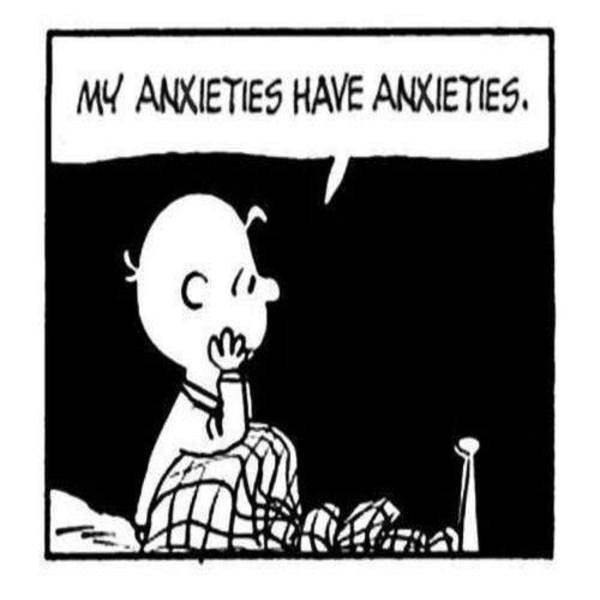The National Institute of Mental Health (Folk, 2015) has found that 18.1% of adults aged 18-54 suffer from some form of diagnosed anxiety. It is thought that another 30% are suffering with some form of undiagnosed anxiety; I, being one of the diagnosed individuals, find it hard at times to communicate effectively in certain situations. Some people experience anxiety related communication impairment solely in social situations whereas others experience it continuously throughout their day. With communication being so important in today's society, individuals with anxiety disorders have to find ways to calm their minds, limit the distractions to focus on their daily conversations, and work to become more efficient listeners to, in turn, become better communicators. This paper intends to answer some questions about how anxiety and communication affect one another showing how anxiety affects the brain's ability to communicate; proving why anxiety disorders are more than just feeling nervous.
Summary of Literature
Communicating effectively uses many parts of your brain; with communication being a transactional process (Alberts, Nakayama, Martin p. 16) effective communicators are using many parts of their brain at the same time. “One part of your brain is controlling your listening ability, [a]nother part of your brain is deciphering what the other person is saying, [a]nother part is formulating what to respond with, and another...is used to share the response” (calmclinic.com, 2017). This process takes a lot of concentration which is made difficult with a brain full of anxious thoughts. Some individuals suffer from distracted thinking which could be thinking about a conversation you had earlier that you keep playing in your head. This overthinking makes communicating difficult to concentrate on.
The World Health Organization (1948) defines health as, “a state of complete physical, mental, and social well-being and not merely the absence of disease” (Rapaport, Clary, Fayyad, Endicot. 2005). By that definition, and according to Folk (2015), approximately 48.1% of American adults are unhealthy (only accounting for diagnosed anxiety disorders). With this disorder comes restless thoughts that can’t seem to be turned off, leading to trouble sleeping, not feeling rested, trouble concentrating, which Rapaport, Clary, Fayyad and Endicot in 2005 found leads to a lower quality of life and ineffective communication.
There is a significant difference between feeling nervous and having anxiety. Individuals with anxious minds can have difficulty speaking interpersonally because they tend to overthink each word that is about to come out of their mouths before it can come out, making it harder to say what is meant to be said. Researchers for CalmClinic.com (2017) talk about how you can stumble over words when you’re nervous about something, but an anxiety sufferer will be focused so much on the words they want to say that they will forget to focus on making their tongue move accordingly. Also when listening to a person speaking, over thinking can lead to an anxious person not actually hearing anything they said. They could have been focusing on their own body language, the person speaking’s body language, or even focusing on focusing which can distract the listener, causing them to miss out on the content necessary for an adequate response (calmclinic.com, 2017).
People tend to notice a change in behavior with individuals who suffer from anxiety disorders. They could seem less focused, or zoned out which some people can interpret as ignoring or not being interested in what they have to say. Related to the social science approach to human communication, Alberts, Nakayama and Martin (2012) suggested that researchers use behaviorism as a way to describe human behavior by focusing on the observable and describable aspects.
The critical approach to communication, and explained on page 45 of Human Communication in Society (2012), is used to see how societal forces influence individual forces and communication habits, which relates to the increase of social media use today. Many people with anxiety feel like they can express themselves more freely on the internet and social media because there is time to edit their words, read and re-read to make sure there aren’t typos, and have a forum that they can be heard. There are still some anxious tendencies that can follow online posting, but at least it can be deleted if they change their mind. In person, these people might not even make an effort to add their thoughts to a conversation or discussion because of the fear of ridicule or embarrassment. This can also save them from showing people their nervous tendencies when/if they do speak up (Folk, 2015). Some people with anxiety feel a rush of adrenaline when they momentarily break out of their shell to share their thoughts with a group, whether digitally or in person, which can help them see that they are capable of communicating without issue.
Conclusion
It is hard to explain how an anxious mind works to someone who has never experienced anxiety before, but with a social science approach and some behaviorism, (Alberts, Nakayama, Martin. 2005) researchers may be able to observe the difference in behaviors between someone with and someone without anxiety.
Sources
Alberts, J., Nakayama, T., Martin, J (2012) Human communication in Society.
Upper Saddle River, NJ: Pearson.
Calmclinic.com (2017) How anxiety can impair communication.
http://www.calmclinic.com/anxiety/impairs-communic...
Folk, J., Folk, M (2005) Anxiety effects on society statistics. Anxiety disorder statistics.
http://www.anxietycentre.com/anxiety-statistics-in...
Rapaport, M. H., Clary, C., Fayyad, R., Endicott, J (2005) Quality-of-life impairment in depressive
and anxiety disorders.





















